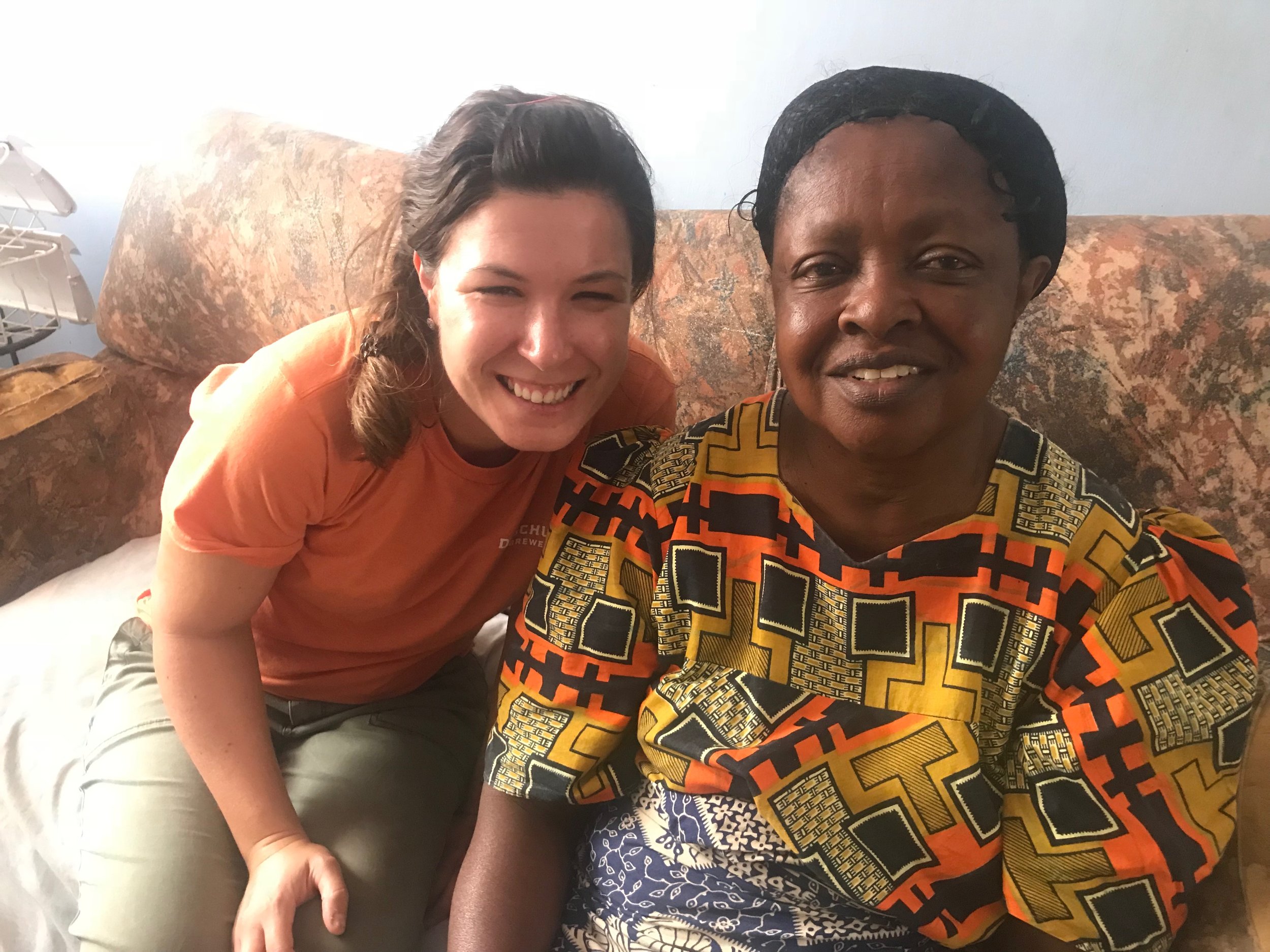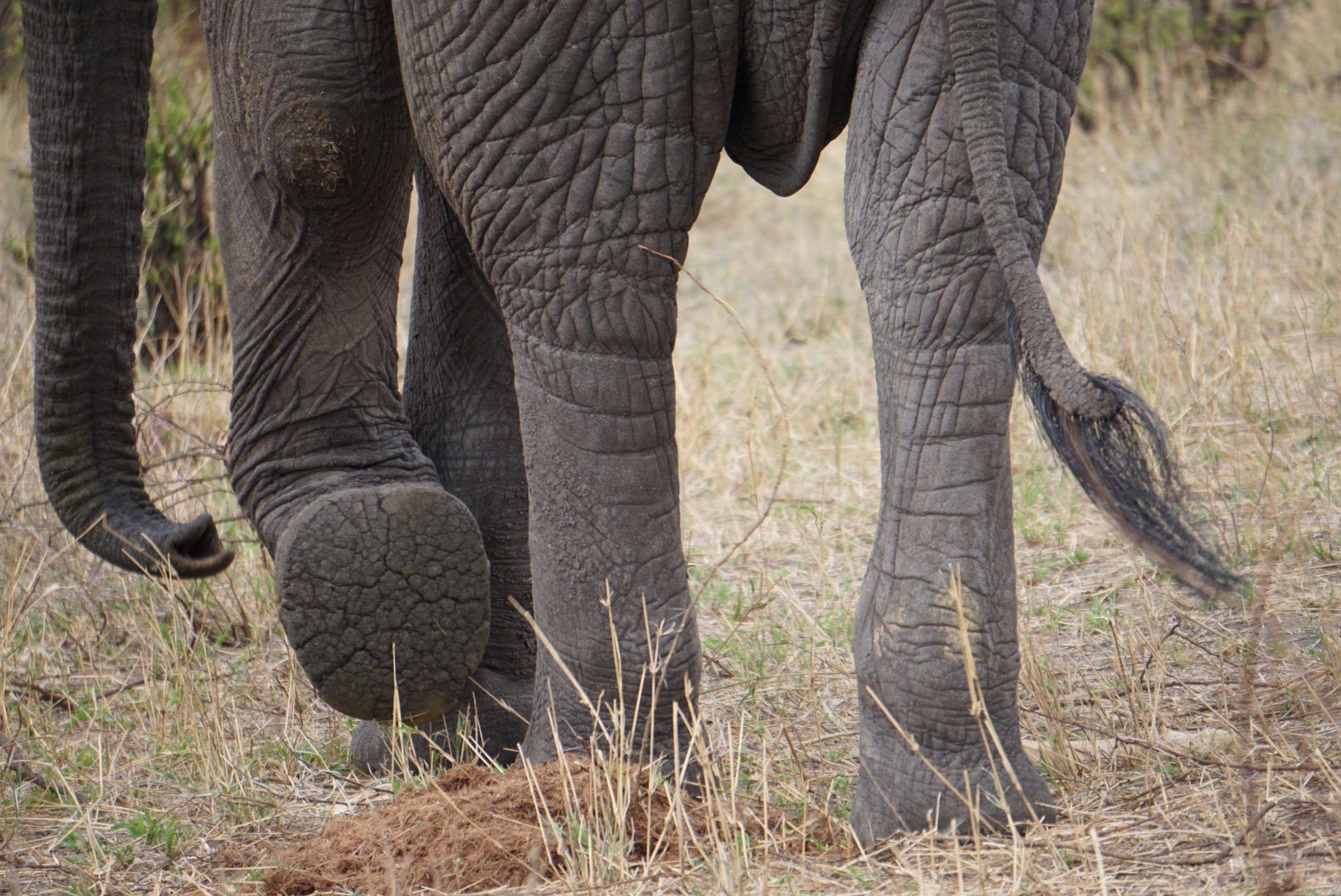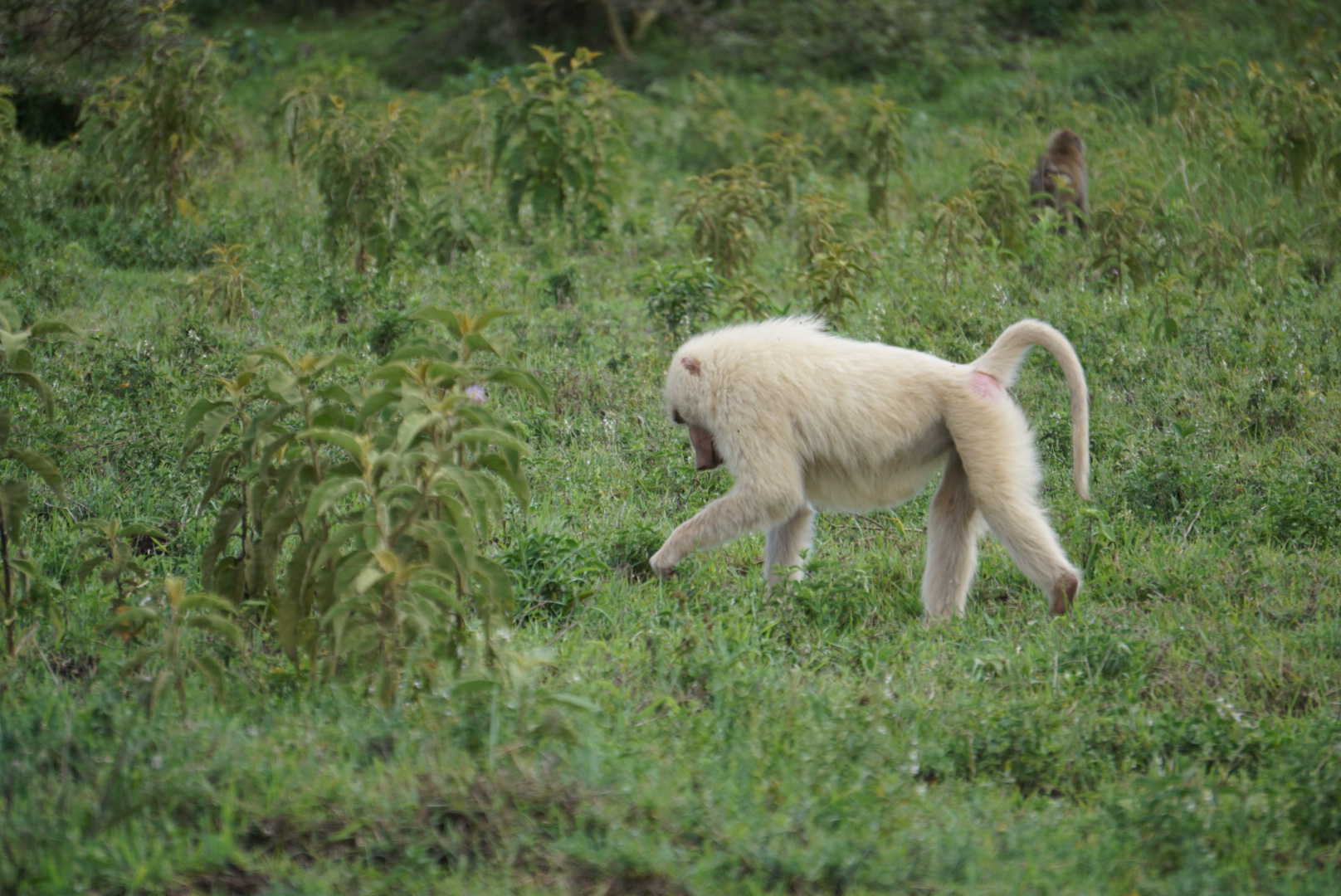The Importance of Socially Responsible Outdoor Adventure Companies and Tours
“The traveler sees what he sees, the tourist sees what he has come to see”.
-G. K. Chesterton
Mambo from Tanzania,
Before I dive deep into a very important subject that is near and dear to my heart, I thought I would give you a glimpse into my past week here in East Africa. I have not returned most of my personal emails, text messages or social media messages, simply because it is too much work (I am truly taking a major break from back home) so I figured I can give a quick wrap up of my past week on this blog post!
I have over 60 mosquito bites ( I stopped counting after 60).
People watching at an African dance club is literally the BEST!
I already ruined a pair of shoes by walking through wet tar.
My Swahili is actually getting a little better each day.
I had one really shitty day ( I literally went home and cried) and seven really good days, thus far.
I saw my African mama and the rest of the family, after 10 years, and I cried! A lot!
I have been on two safaris in one week ( I am addicted).
I have already had diarrhea (yeah, it was bound to happen).
I have eaten my favorite African food, chipsi mayaii, three times in one week (I actually ate it twice in one day).
I am obsessed with the two girls who run the house I am living in. Their names are Jenny and Monica.
I saw a fight break out on the dala dala (local bus) and it made me laugh.
I unfortunately, already experienced corruption, and it infuriated me to my core.
It is supposed to be the “cool” season here but I am constantly sweating. It is so HOT!
I am actually planning to travel a lot more than I initially planned!
I miss my dogs LIKE CRAZY( I wish I can teleport them here)
I am super happy to be disconnected from the United States and everyone at home ( I seriously needed a break).
The currency exchanges are STILL closed ( due to some corruption government scandal) so I am getting really excited to shortly be paying international ATM fees (NOT).
Wells Fargo Bank does not have a Tanzanian country code for free bank calling ( apparently this country does not exist to Wells Fargo).
Yes, I have to answer emails between 1-3AM Tanzanian time ( there is an 11 hour time difference between here and California) in order to accommodate my work schedule in the U.S….. so yes, my sleep schedule is crazy but I love the company I work for!
There is this HUGE raven who taps loudly on my window with his beak. Considering I am terrified of birds, this is extremely disturbing and is the main reason why I will never open my bedroom window.
Everyone here talks about my hair (white girl hair is a novelty here).
I have learned not to allow a 4-year-old to drink hot chocolate (regardless of what his crazy dad says) as it ended up all over my pants, his face, the table and the floor at a swanky hotel. (Yep, super embarrassing).
Feel free to read my recent detailed blog post about my first 24 hours in Tanzania.
My African Mama and I, 10 years later!
Socially responsible companies
Socially responsible companies are those that provide products and services that minimize negative impacts to the local community and environment by preserving the cultural and natural resources of the particular host community and also bring economic benefit to the local communities. According to research 46% of consumers are wiling to pay extra for products and services from socially responsible companies. 46%.... ARE YOU KIDDING ME?! This number not only baffles me but also bothers me to my core. Traveling and seeing the world is a privilege. It costs money, requires a passport and in some cases, a visa, and requires time off of work; a privilege that many individuals are not granted, however for those who are privileged enough to travel, particularly internationally, it is pathetic that only 46% of us truly care enough about the culture and the environment to engage in socially responsible travel. I also believe a large portion of international tourists are ignorant, in a sense they do not know any better. I was 19 years old when I ventured out on my first international solo trip and to be honest, it took me a few years before I learned the ethics and the importance of socially responsible tourism. I am now 33 years of age, and have been fortunate to have traveled to more countries than I can count and have lived and worked abroad on three different continents (Europe, Asia and Africa). After a solid decade of international travel under my belt, I finally feel confident enough to speak on this important issue.
The tourism industry in developing countries is saturated and corrupt and it can be extremely overwhelming to decipher which company is the best fit for your tour. Whether you plan to head out on an African safari, climb one of the tallest mountains in the world, take a cruise on the Nile River or take a tour of a local coffee farm, there are many factors that play into which tour company you choose to hire for your next adventure…and the number one factor for many individuals is usually money.
I get it, we are all on a budget and we are constantly looking to save a dollar or two; however there is a fine line between saving money and exploitation and oftentimes they both go hand in hand. The outdoor industry in the U.S. is no different as there are many outdoor retailer and adventure companies in the United States who are ethical and practice social responsibility however there are also many of which who are not. Whether you are buying a piece of clothing from REI or planning an epic safari in Africa, as a consumer, it is your job to ask questions, to do the research and to thoroughly understand why saving a dollar here and there may actually be more harmful to the local culture and the environment than you may think.
Always book your adventure from local companies
Personally, I am very picky on which products I buy and which companies I hire when I choose to go on an adventure. I want to know where the company is based, how the employees are treated and if the environment is harmed in the process. For example, when choosing a safari company or an international trekking company, it is EXTREMELY important that the company is locally owned. Why on earth would I ever book an AFRICAN safari with an AMERICAN company? For starters, the American owners are profiting more than you can imagine which takes away profit from the local people in Africa. Also, the safari industry in Africa is huge, for example the safari industry just in Tanzania alone is a multi-million dollar industry, and let me tell you a secret, the people of Tanzania know more about safaris than any American tour company. After all, the animals you see on an African safari are indigenous to the land. By booking with an American company for an activity overseas, I can guarantee you that you will pay more money and somewhere down the line, you are exploiting the local people. Cut the middle man out and book right from the local source.
Do a quick Internet search for what you are looking for and email each company that you are interested in and ask them specific questions. Ask them if the company is local, ask about fair wages, and ask about tipping procedures. If you do not hear a detailed response within a week, then something is wrong. A reputable tour company will be honest and upfront and if it seems they are hiding something, then they probably are. I have learned this lesson the hard way and if you are not willing to put in the work, then it is only your fault that you are compromising your dream adventure.
Side note: I recently was engaging with an American owned Kilimanjaro trekking and safari company through social media, (I have had many offers to climb Kilimanjaro for free in exchange for photos or a blog post, all of which I have politely declined) and I asked if they were supported by KPAP (Kilimanjaro Porters Assistance Project). The owner politely responded “no” along with many ridiculous excuses and I quickly lost interest in doing any sort of business with his company. Every single Kilimanjaro trekking company that you hire should be supported by KPAP, if not, you are doing yourself and the Tanzanian culture a disservice. For more information on KPAP, visit their website.
Second side note: I am currently planning a trip to Nepal to climb Everest Base Camp November 2019 and I have spent hours emailing back and forth with the trekking company I chose to hire (If I couldn’t afford to put in the time to research the specifics then I should not be venturing to Nepal).
The Tanzanian safari and trekking industry
Let’s be honest, the majority of foreign tourists who visit Tanzania are coming for the sole purpose of going on a safari and/or to climb Mt. Kilimanjaro. Both of these experiences are life changing and although I have lost count of how many safaris I have gone on, a day on safari never gets old for me. Unfortunately many of the international tourists who venture into Africa sit idle for 20 hours on a plane each away to spend 5-10 days sitting in a safari jeep without taking any time to venture out into the towns and experience the local culture (I think this is crazy but it is also quite comical to witness).
An African safari in Tanzania costs $150 to $1,500 per person per night (unless you are a local or have your resident permit) and this rate depends on your accommodations, which National Parks you are visiting, which tour company you hire, or whether you book a private safari or a group safari. I personally will not pay more than $400 per day to go on a private safari if I am using a safari jeep or more than $150 per day for a private safari if I am using someone’s private vehicle. The average safari-goer will choose to go on a 3-5 day safari totaling anywhere from $450-$6,500 per person, and much more for a 7-10 day trip. A safari company will profit on average, $8,000-$10,000, per group for a week safari and the safari guide will take home on average, $1,000 (the safari guides work super hard and do all the real work).
The average price per person for a 6 day Kilimanjaro trek is anywhere from $1200 to $4000 and again these prices depend on which company you hire and whether you are looking for a budget climb or a fancy climb. You can only imagine how much the company makes off of each climber compared to how much the trekking guides and porters make.
If you are interested about the specifics on porters and guides on Mt. Kilimanjaro, please read my recent post entitled, Giving Back, Porters’ Rights and My Experience Climbing Kilimanjaro
Also if you are the asshole who goes on hunting safaris, I hope I never have the dissatisfaction of interacting with you.
Tipping IS protocol
Personally, the cost margins between safari companies and the worker’s wages are super important because there is not only a huge discrepancy in price, but also this brings up the importance of tipping. I do not care if tipping is protocol or not in your home country but tipping on a safari, a trek or any type of adventure or experience around the world IS PROTOCOL. If you hire a guide to take you hiking through the Amazon, you tip him, if you hire a driver to take you on a tour of the ruins in Southeast Asia, you tip him and if you go on an African safari or climb Kilimanjaro (or any other mountain) you better damn well tip your guide, cooks and porters and tip them properly. If you are too cheap to tip the proper amount or simply cannot afford to tip, then take some time to save your money until you can afford to tip properly. If you do not know how much to tip, then search the Internet, ask your guides and ask the company you hired. A proper company and good guide will be honest with you about tipping. For a quick and dirty on tipping for Kilimanjaro trek or a Tanzania safari, please read below:
Kilimanjaro tipping guidelines
Per each climber per day:
Per Chief Guide: $20- 25 per day
Per Assistant guide: $15- 20 per day
Per Cook: $10- 15 per day
Per Porter: $8-10 per day
Each client should expect to tip between $250-$350, for the entire climb in addition to the cost of the climb.
Tip at the end of your trek and personally hand the tips in an envelope to each guide, porter and cook. Do not give your tips to the trekking company!
If you cannot find your porters because they are always WAY ahead of you, then ask your guides to meet with them or give the porters your tips at camp on the last night of your trek. If you cannot, in anyway, hunt down your porters, then you most likely hired a corrupt trekking company. I met every single one of my porters (and saw them every single day) on both of my Kilimanjaro treks and my Machu Picchu trek.
Tanzania safari tipping guidelines
Per client per day:
For a day safari, there is usually a guide and a tracker. For overnight safaris the tracker may double as the assistant guide and cook.
Per Chief Guide: $15-$20 per day
Per Assistant guide/tracker $10-15 per day (if they double as your chef then tip on the higher end)
Per Chef: $10-$15 per day
For a seven-day camping safari, each client should budget approximately $250, in addition to the cost of the safari. Personally hand your tips in an envelope to your guide and assistant guide at the end of your safari (not at the end of each day).
Outdoor ethics while adventuring in Africa
Regardless if you are hiking on a local trail in Southern California or adventuring on an African safari in a Tanzania National Park, there are rules and regulations you should follow. Yes, some corrupt safari companies (and guides) will allow you to break the rules in hope they will receive a bigger tip so it is YOUR responsibility to respect the environment and the animals
Keep wildlife wild: Do not disturb the animals you see on a safari. I get it, us photographers want the best photos possible but yelling, harassing or feeding a wild animal is stupid, reckless and dangerous. Do not get out of your safari jeep at anytime and please do not try to bribe your guide in hopes he will allow you to break the rules. Do not put your guide in that type of situation and a respectable guide will be very clear about communicating the rules to you (in case you are inept).
In regards to photography, keep your noisy drones at home (they are forbidden in National Parks) and if you want to take a photo of an individual, ask them first. It is exceptionally rude and culturally unacceptable to go up to people and take their photos as if they are objects. If you cannot speak their language then wait until you have a translator with you to ask them for permission. I always ask for permission, and then show them the photo afterwards, which usually sparks some form of human connection. If the individual does not want his/her picture taken then you must respect their wishes.
For additional trips on traveling, check out a previous blog post I authored about why I LOVE traveling solo.
Thanks for reading and I wish you a happy and safe adventure (whether it’s in your own backyard or overseas).
Xx
Kristen

























